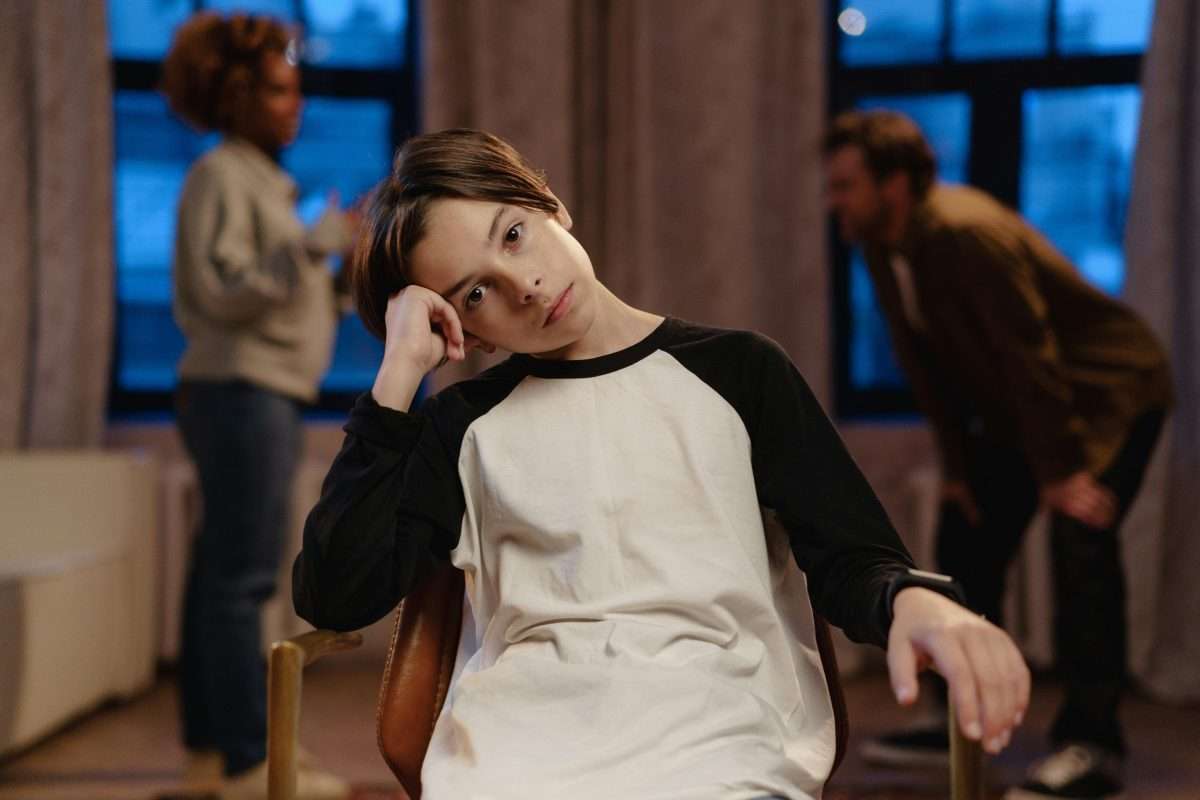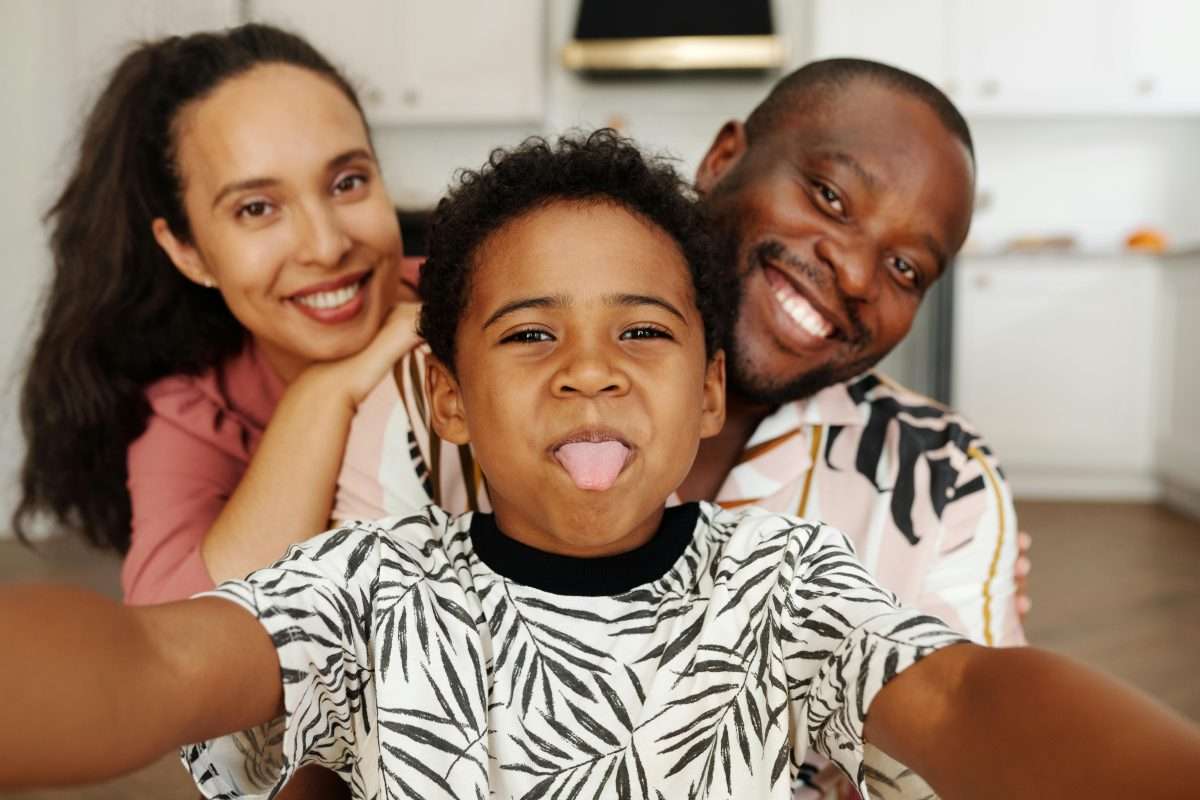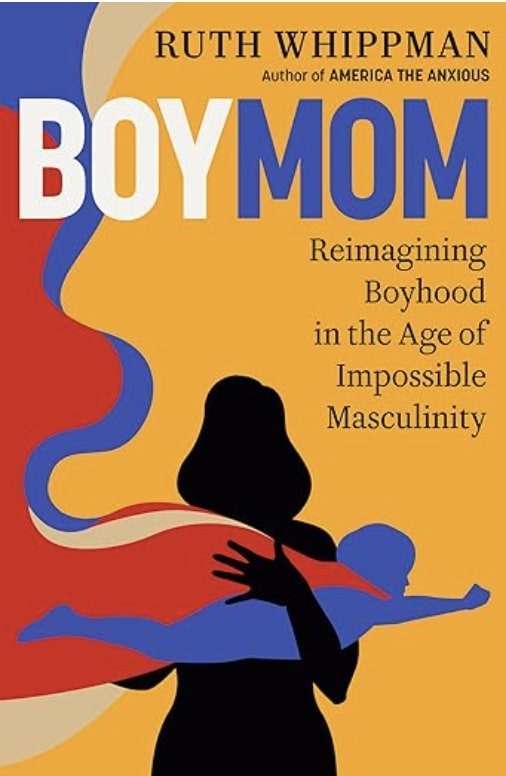Ruth Whippman vividly recalls the #MeToo movement of 2017.
It coincided with her third pregnancy, and ultimately left an indelible mark on her.
"I think we realized this volume of male harm and bad behaviour and the sort of violence that had been perpetrated by men and boys was just something we couldn't really ignore," Whippman told Lianne Castelino during an interview for whereparentstalk.stagingserver.cloud/.
The moment left Whippman, journalist, cultural essayist and former director and producer at the BBC, with complex emotions about raising boys. The cultural reckoning made her deeply question society’s role in shaping young men.
“What I did realize is that obviously we’re doing something wrong,” she says. “No mother, no parent, wants to raise a sexual predator or a school shooter. Nobody goes in with that intention. Everyone’s doing their best. But obviously there’s something invisible in the culture and in the way that we’re treating boys, raising boys, that we are unaware of and that we need to tackle.”
It compelled her to dig further and deeper.
By that point, Whippman had given birth to her third child. She was now a mother of three boys.
“The negativity of the conversation and this sort of inevitability and talking about boys and men as if they were somehow destined to be harmful, I was pushing back and thinking, well, no, no, look at my sweet baby — he’s not going to be that way. What can I do?”
The Personal Meets the Political
Whippman soon found herself immersed in a personal and societal mission.
“What I wanted to do with the book was to really write into the conflict, rather than being very certain that this is the way to go,” she says. “I wanted to write from that position of — I don’t know, what can we find out. I’m scared, I’m conflicted. I’m defensive, and let’s be honest about all of those feelings and how messy it all feels.”
Her desire to understand these issues was not only fuelled by media headlines but also by her own lived experience.
“I had been raised by a feminist mother, and I had it in my mind that gender is all socialized,” she explains. “And then I found when my third son was born, my two oldest boys just went completely wild,” she says.
 “All those stereotypes about boys will be boys, they’re wild, they’re aggressive, they’re rambunctious, they fight all the time, all of those stereotypes were just kind of coming true in our own home, in my own life,” she recounts.
“All those stereotypes about boys will be boys, they’re wild, they’re aggressive, they’re rambunctious, they fight all the time, all of those stereotypes were just kind of coming true in our own home, in my own life,” she recounts.
“I felt really powerless. I was like, I don’t feel like I’m socializing them into this behaviour. I feel like I’m socializing them away from this behaviour. Why does it keep happening? It felt like every time my kids were wrestling on the living room rug or punching each other, that that was like a straight line to something toxic in adulthood,” Whippman shares from her home in California.
The realization that she wasn’t in full control of how her boys behaved led her to embark on a journey of research, reporting, and self-reflection, culminating in her book, BoyMom.
“I was on that journey the whole way through the book,” she says. “Whatever research I’m doing, whatever reporting I’m doing, I bring my own voice and my own fears and my own conflicts into it to try and just make sense of it for myself as much as for anyone else.”
While acknowledging that no parent sets out to raise a violent or harmful child, Whippman highlights how deeply ingrained cultural narratives about masculinity can influence boys in ways that parents might not even be aware of.
“There’s a lot of research that supports this idea that we treat boys and girls slightly differently as parents, and this starts right from birth,” she says. “The way we treat boys is slightly less emotional, slightly less tender. We give them slightly less attention in all these different domains. We talk to them less. Parents talk to them less in general, and talk to them far less about their feelings and their emotions. So there’s this sort of different way that people parent boys and girls, and once I was aware of that and the sort of impact that has long term for boys, I started to really try to correct for that in my own parenting.”
 A Deep Dive into Boyhood
A Deep Dive into Boyhood
A blend of memoir, investigative journalism, and social analysis, Whippman engaged with a wide range of subjects as part of the research into Boymom.
“What I wanted to do was get out and just talk to boys,” she explains. “Listen to boys, talk to experts, talk to boys who are maybe involved in some of these darker things that are my greatest fear. I talk to boys from the INCEL movement —they’re kind of associated with school shootings, acts of mass violence — these guys who are involuntary celibate they they call it — and they hang out in these very toxic communities online. I spent some time interviewing them. I went to boys therapy centres. I talked to people on the left, on the right, I went to schools. I went to sports teams. I just wanted to listen to what boys were telling me, and to go and visit the places where they hang out.”
She did this over a five-year period. Her approach was to listen without judgment, to understand the pressures and confusion that boys are experiencing in today’s world. She then infused the science component into the work – research studies, psychological studies and the science of gender differences.

Having interviewed a diverse range of boys — from different economic and racial backgrounds, varied geographic locations and those with different political beliefs – Whippman was struck by the common threads across the board that rose to the top.
“I was really surprised at how lonely and disconnected a lot of them felt,” she shares. “I think boys are feeling very lonely and isolated in this moment. “Another one was the sort of pressures of masculinity. This idea that masculinity was something that they were still expected to live up to — this old school masculine ideal where they were tough and they were strong and that they couldn’t show weakness, that they couldn’t talk about their emotions, that this sort of standard of bulletproof toughness.”
 She notes that many boys struggle to navigate the conflicting expectations placed on them: on one hand, they are still pressured to be “tough” and emotionally stoic, while on the other, they are warned against being too dominant or aggressive. This leaves them in a state of uncertainty, unsure of how to express themselves or form meaningful connections.
She notes that many boys struggle to navigate the conflicting expectations placed on them: on one hand, they are still pressured to be “tough” and emotionally stoic, while on the other, they are warned against being too dominant or aggressive. This leaves them in a state of uncertainty, unsure of how to express themselves or form meaningful connections.
Whippman also highlights how boys’ friendships differ from those of girls. While young boys often form close bonds in early childhood, these friendships can wane as they grow older due to societal expectations that discourage emotional intimacy among males. This lack of deep friendships, she argues, contributes to boys’ growing sense of isolation and difficulty in expressing vulnerability.
The Role of Parents in Shaping Modern Boyhood
Whippman explores how parenting practices contribute to boys’ development. She examines how parents, often unintentionally, reinforce traditional gender norms—praising toughness while discouraging emotional openness.
She also delves into the cultural shift in parenting styles, noting that modern parents are far more involved in their children’s emotional and social development than in previous generations. However, despite this shift, boys still face significant barriers in expressing emotions openly.

“There’s still this subconscious bias where we expect boys to just ‘shake it off’ or ‘toughen up,’ even if we don’t consciously believe in those ideas,” she explains.
Whippman emphasizes the importance of modelling emotional expression and creating spaces where boys feel safe to talk about their feelings. Encouraging deeper conversations, fostering strong friendships, and challenging outdated stereotypes are all steps toward raising emotionally healthy boys.
 Rethinking How We Raise Boys
Rethinking How We Raise Boys
Whippman’s exploration of masculinity isn’t about blaming boys or labelling them as inherently problematic—it focuses on understanding the social structures that shape them and finding healthier ways to support them.
She calls for more open discussions about emotional expression, deeper male friendships, and a redefinition of masculinity that allows boys to be both strong and vulnerable.
Related links
ruthwhippman.com
Related articles
Better Understanding How to Build Boys Today
